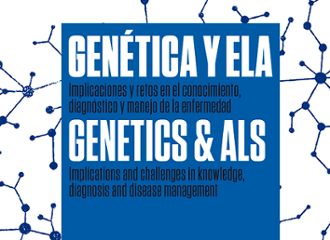Research projects
Start of main content
Improvement of Diagnosis and Neonatal Screening of Hereditary Metabolic Diseases Using Untargeted Metabolomics
22st national competition for scientific and technical research
Rare diseases
Senior Researcher : Judit García Villoria
Research Centre or Institution : Fundació Clínic per a la Recerca Biomèdica. Hospital Clínic. Barcelona
Abstract
Inherited Metabolic Diseases (IMD) are monogenic disorders that affect metabolism. Although individually rare, they are more common collectively and cause high morbidity and mortality. Some treatable IMDs are included in Newborn Screening Programs (NSP), but they represent a minority.
A large portion of these IMDs can be identified through the analysis of specific metabolites via various analytical tests selected based on the patient's symptoms, which require the use of different analyzers. However, the symptoms are often nonspecific, making diagnosis difficult. Therefore, there is a need to measure these metabolites globally, and high-resolution mass spectrometry can meet this unmet need. This technology allows for untargeted investigation of over 5,000 compounds in a single analysis of a biological system at a specific time, known as untargeted metabolomics (UTM).
The aim of this project is to improve both the diagnostic workflow and the detection of IMDs in NSP using UTM. One of the goals is to implement the analysis of a very broad panel of metabolites via UTM to identify approximately 400 HMDs in a single test. This approach will optimize resources, simplify processes, and reduce diagnostic time. Moreover, this panel could be used in neonatal screening as a broader, second-tier test compared to those currently used. This approach will increase efficiency in detecting these diseases, as it will reduce the number of false negatives and positives, as well as the need for second samples, also decreasing the anxiety of affected families.
It is worth noting that the use of next-generation sequencing (NGS) has improved the diagnosis of IMDs, and in the near future, the implementation of a genomic NSP is expected. However, one limitation of using NGS in both areas is the interpretation of variants of uncertain significance (VUS), whose impact on the patient's clinical outcome is unknown. Therefore, another objective of the study is to integrate UTM with genomics in both diagnosis and NSP to obtain information about the functional impact of VUS, thereby increasing diagnostic efficiency and sensitivity. This integration will be pioneering at a national level and will lead to a diagnostic paradigm shift in IMDs .
-
 Activities related
Activities related
-
 Projects related
Projects related
-
 News related
News related
-
 Publications related
Publications related
 Activities related
Activities related
-
26
Jun
2024
Conferencias La aventura de la ciencia Madrid, Miércoles 26 de junio de 2024, 19:00 horas
-
13
Feb
2025
17th edition. Cycle of conferences and debates in science Digital Twins: Technological Advances and Application Opportunities Madrid, Thursday, 13 February 2025, 17:30 hours
-
18
Feb
2025
Session New Therapies for the Inflammation Treatment Madrid, Feb 18th, 2025, Tuesday. 4PM
 Projects related
Projects related
- Development and Application of saRNAs for the Treatment of Rare Monogenic Diseases 2024 Senior Researcher : María Luisa Cayuela Fuentes
- CHANNELOSOME RESCUING PEPTIDES IN THE TREATMENT OF ARRHYTHMIAS IN INHERITABLE HEART DISEASES 2024 Senior Researcher : José Jalife Research Centre or Institution : Centro Nacional de Investigaciones Cardiovasculares (CNIC). Madrid
- Mechanisms for sustaining mitochondrial genome integrity and function during hematopoiesis. 2024 Senior Researcher : Ana Victoria Lechuga Vieco Research Centre or Institution : Fundació Clínic per a la Recerca Biomèdica. Hospital Clínic. Barcelona
 News related
News related
 Publications related
Publications related


End of main content



